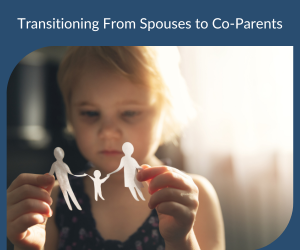
Divorce can be a challenging and emotionally charged life event. When a married couple decides to part ways, they often find themselves navigating a turbulent sea of emotions, ranging from grief and loss to anger and confusion. However, it’s crucial to recognize that divorce doesn’t mark the end of a relationship; it’s a transformation, especially when children are involved. In many cases, couples transitioning from spouses to co-parents face unique emotional hurdles that require careful consideration and a commitment to building a healthy co-parenting relationship.
The Importance of Understanding Emotions
One of the most significant emotional challenges faced by couples divorcing and transitioning into co-parenting is the sense of grief and loss. When a marriage ends, individuals often mourn not only the partnership but also the dreams, expectations, and plans they had for their shared future. It’s important to acknowledge these feelings, as they are a natural part of the process.
In addition, anger, resentment, and blame often accompany the divorce process. These emotions can be particularly detrimental when trying to build a healthy co-parenting relationship. It’s vital to work through these feelings and shift one’s focus towards acceptance and cooperation. This can be done by having empathy, communicating effectively, and setting boundaries.
RELATED: Read these 5 tips for setting co-parenting boundaries.
Building a Healthy Co-Parenting Relationship
The transition from spouses to co-parents can be smoother with a deliberate effort to prioritize the children’s best interests. Here are some strategies to help build a healthy co-parenting relationship:
Collaborate on Parenting Decisions: Make a joint effort to discuss and decide on important matters related to the children, such as education, health, and extracurricular activities.
Consistency is Key: Strive for consistency in parenting styles and rules between households. Children benefit from knowing what to expect in both homes.
Keep the Lines of Communication Open: Maintain regular, respectful communication with the other parent. This could include sharing updates on the child’s activities, school, or health. Do not withhold information and/or facts relating to the children. Be open and honest as to the children.
Attend Co-Parenting Classes:Many resources, such as co-parenting classes or therapy, are available to help divorcing couples learn effective co-parenting skills. Co-parents can consider attending these programs to improve their co-parenting relationship.
If you’re going through this situation, we understand that transitioning from being a married couple to co-parents is a challenging, emotional journey. It’s natural to experience grief, loss, and a range of complex emotions during this transition. However, by acknowledging these feelings and taking proactive steps to manage them, you can move toward a place of acceptance and cooperation.
Remember that the well-being of your children should always be the top priority. By building a healthy co-parenting relationship, you can provide a stable and loving environment for your children to thrive despite the changes in your marital status. With time, patience, and a commitment to effective communication, you can successfully navigate the emotional challenges of transitioning from spouses to co-parents and give your children the support they need to flourish.
Need someone to help guide you through the steps to protect yourself and your family’s future? If so, our attorneys who are well-versed in divorce and all family law matters can help. Contact us to set up a consultation however it is most convenient for you—via telephone, video, or in person.
FAMILY LAW SERVICES
Divorce
Legal Separation
Prenuptial & Postnuptial Agreements
Tax Issues
Fees
Adoption
Same-Gender Marriage
Domestic Partnerships
Child Custody
Family Support
Mediation in Divorce Matters
Collaborative Law Services










